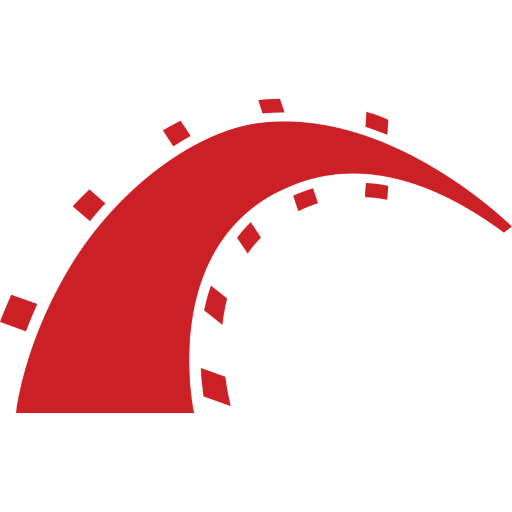Ruby on Rails (aka Rails) is a server-side web application framework written in Ruby.
Rails is a model–view–controller (MVC) framework, providing default structures for databases, web services, and web pages. It encourages and facilitates the use of web standards such as JSON or XML for data transfer, HTML, CSS, and JavaScript for user interfacing.

Price Calculator
Data Centers Around the Globe

Frequently Asked Questions
Operating System:
Linux: Highly recommended for optimal compatibility and performance. Ubuntu, Debian, CentOS, Red Hat, and Fedora are popular choices.
macOS: Suitable for development and smaller projects, but not ideal for production environments due to potential software stability and administration challenges.
Windows: Supported, but often requires additional configuration and might have limitations for certain features.
Hardware:
CPU: Modern 64-bit processor with at least 2 cores for efficient performance.
RAM: Minimum 4GB, but 8GB or more is recommended for larger projects and faster development.
Storage: Minimum 20GB for Rails installation and project files, plus space for databases, logs, and media assets.
Software:
Ruby:
Version 2.7.5 or higher is recommended, with the latest stable version preferred for optimal performance and security.
Use a version manager like rbenv or rvm to manage multiple Ruby versions effectively.
Rails: The specific version depends on your project requirements and compatibility with gems.
Database:
PostgreSQL is the preferred database for Rails due to its performance and features.
MySQL and SQLite are also supported, but PostgreSQL is generally recommended.
Web Server:
Apache or Nginx are common choices.
Passenger or Puma are popular application servers for running Rails applications within the web server.
Node.js and Yarn: Often required for asset pipeline management and JavaScript dependencies.
For more detailed information, refer to the Ruby on Rails installation guide.
Ruby on Rails, commonly referred to as Rails or RoR, is a web application framework written in the Ruby programming language. It is designed to be developer-friendly and follows the convention over configuration (CoC) and don’t repeat yourself (DRY) principles. Common use cases for Ruby on Rails include:
Web applications, content management systems (CMS), e-commerce platforms, social networking sites, project management tools, startups and MVPs, API backends, educational platforms, real-time applications, SaaS (Software as a Service) applications, healthcare applications, financial applications, collaborative tools, and entertainment and media platforms.
Several web frameworks exist as alternatives to Ruby on Rails, each with its own set of features, programming languages, and development philosophies. Here are some popular alternatives to Ruby on Rails:
Django (Python), Express.js (JavaScript/Node.js), Laravel (PHP), Spring Boot (Java), Flask (Python), React (JavaScript), Angular (JavaScript/TypeScript), Symfony (PHP), Rails API (Ruby), ASP.NET Core (C#), and Phoenix (Elixir).
Convention over Configuration: Rails embraces conventions more strongly than frameworks like Django or Spring, reducing configuration but potentially limiting customization.
Full-Stack vs. Microframeworks: Rails provides a comprehensive full-stack solution, while options like Flask or Express.js offer more flexibility for smaller projects or custom architectures.
Developer Experience: Rails prioritizes developer productivity and enjoyment, emphasizing clean code and conventions, while frameworks like Spring might focus more on enterprise-level features and scalability.
Ruby on Rails uses SQL (Structured Query Language) for interacting with relational databases.
Here’s why Kamatera stands out as the most compelling option for Ruby on Rails hosting:
Cutting-edge hardware: Kamatera leverages Intel Xeon Platinum processors and NVMe SSD storage, guaranteeing exceptional performance for your solution.
Global network reach: With 18 data centers strategically located across four continents, Kamatera provides low-latency access to your server, regardless of your users’ geographical locations. This minimizes lag and ensures consistent performance for geographically distributed teams.
Elastic infrastructure: Kamatera’s infrastructure seamlessly scales to accommodate your growing needs. You can easily add or remove resources on-demand, without downtime or performance bottlenecks.
Industry-leading security measures: Kamatera prioritizes security by implementing data encryption, access control mechanisms, vulnerability scanning, and compliance with industry standards like PCI DSS and SOC 2.
24/7 Support: Kamatera’s dedicated support team is available 24/7 to assist you with any questions or issues you may encounter with your Ruby on Rails hosting.